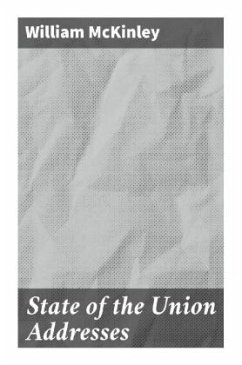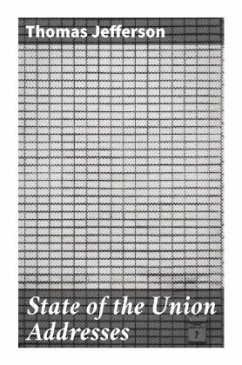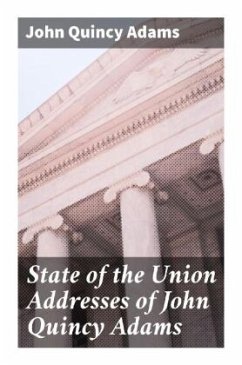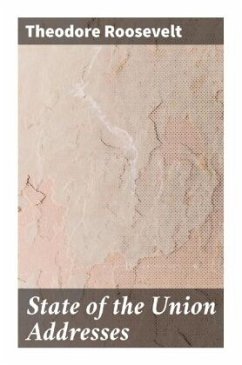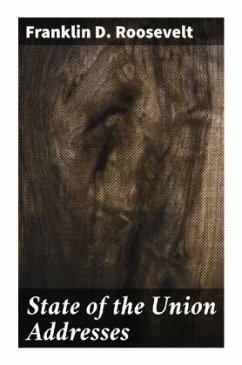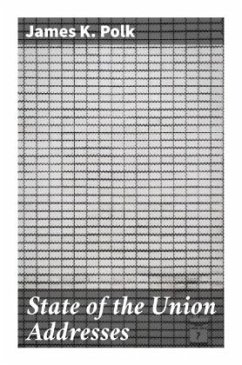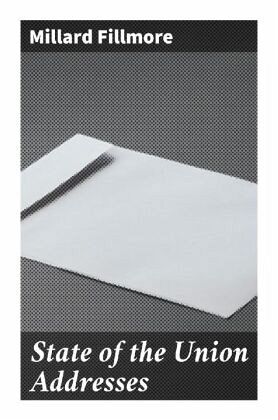
State of the Union Addresses
Versandkostenfrei!
Versandfertig in 6-10 Tagen
6,99 €
inkl. MwSt.
Weitere Ausgaben:

PAYBACK Punkte
3 °P sammeln!
Millard Fillmore's "State of the Union Addresses" presents a compelling examination of mid-19th century American political climate through the lens of the presidential addresses delivered during his administration from 1850 to 1853. This collection is characterized by Fillmore's clear prose and decorous rhetoric, reflecting the era's formal political discourse while addressing critical issues such as sectional conflict, the Compromise of 1850, and the throes of an impending national crisis over slavery. The addresses encapsulate the tension between the aspirations of a burgeoning nation and th...
Millard Fillmore's "State of the Union Addresses" presents a compelling examination of mid-19th century American political climate through the lens of the presidential addresses delivered during his administration from 1850 to 1853. This collection is characterized by Fillmore's clear prose and decorous rhetoric, reflecting the era's formal political discourse while addressing critical issues such as sectional conflict, the Compromise of 1850, and the throes of an impending national crisis over slavery. The addresses encapsulate the tension between the aspirations of a burgeoning nation and the stark realities posed by its divisive social issues, contributing to a literary context that shaped the philosophical underpinnings of American governance during a tumultuous period. As the 13th President of the United States and a dedicated Whig politician, Fillmore was shaped by the political ideologies and conflicts of his time. His commitment to preserving the Union and a moderate stance toward both North and South informed his addresses, highlighting his struggle to maintain national unity against the growing crisis. His historical significance is furthered by his role in promoting the Compromise of 1850, reflecting his earnest political approach amidst the charged atmosphere of American politics, which was heavily influenced by moral and economic factors. This collection is invaluable for anyone seeking to understand the intricacies of American political history, especially in relation to the tensions that preceded the Civil War. Fillmore's eloquence and the historical contexts he navigates are critical for students, historians, and readers interested in the intersection of political leadership and national identity during a pivotal moment in American history.






